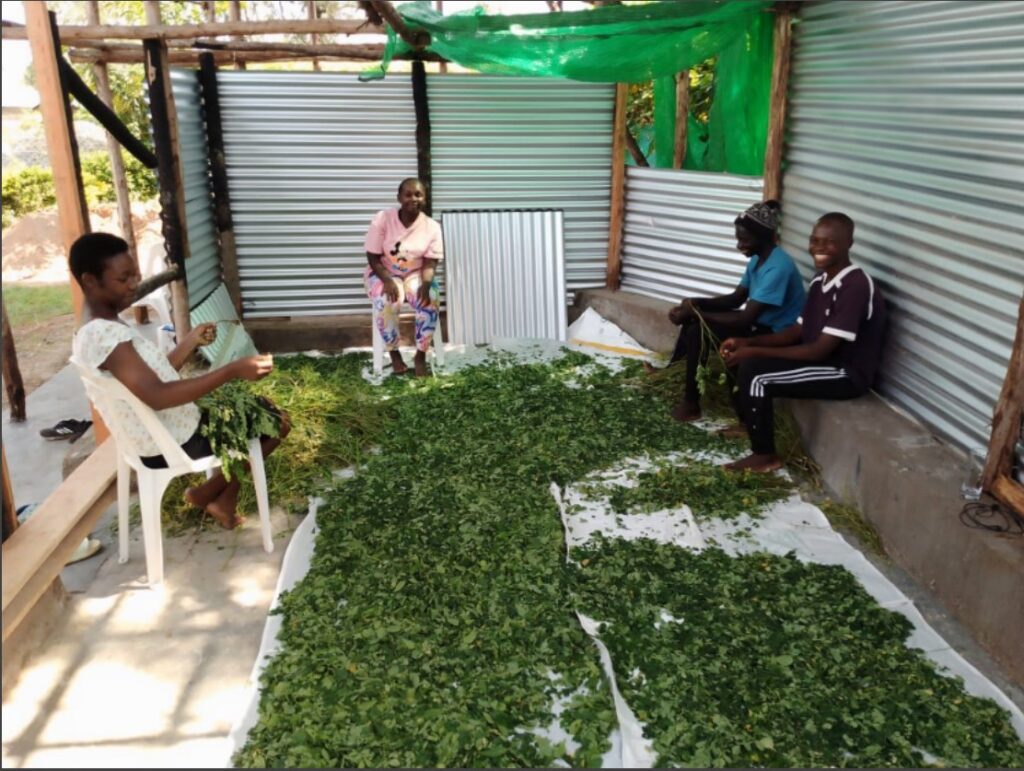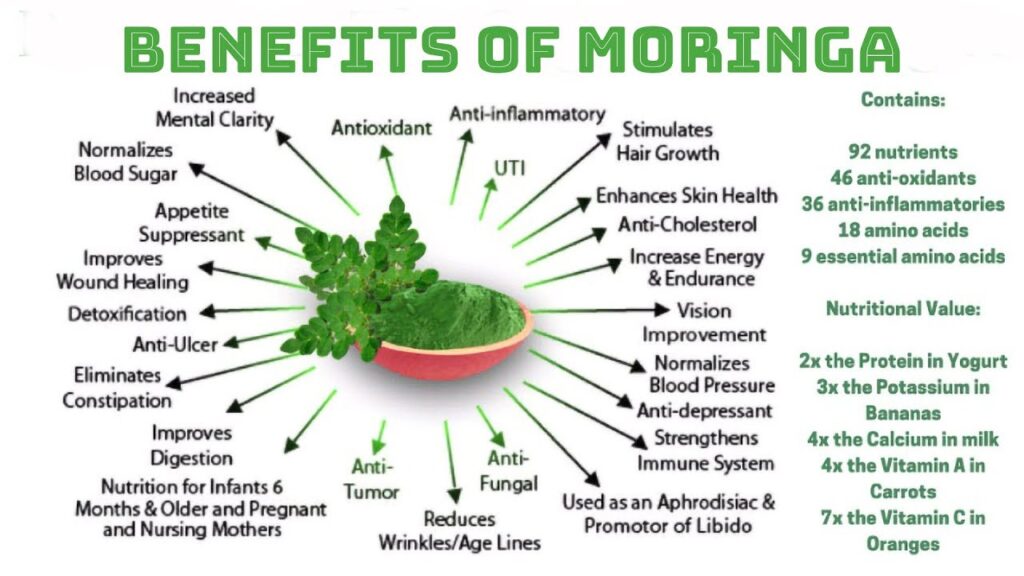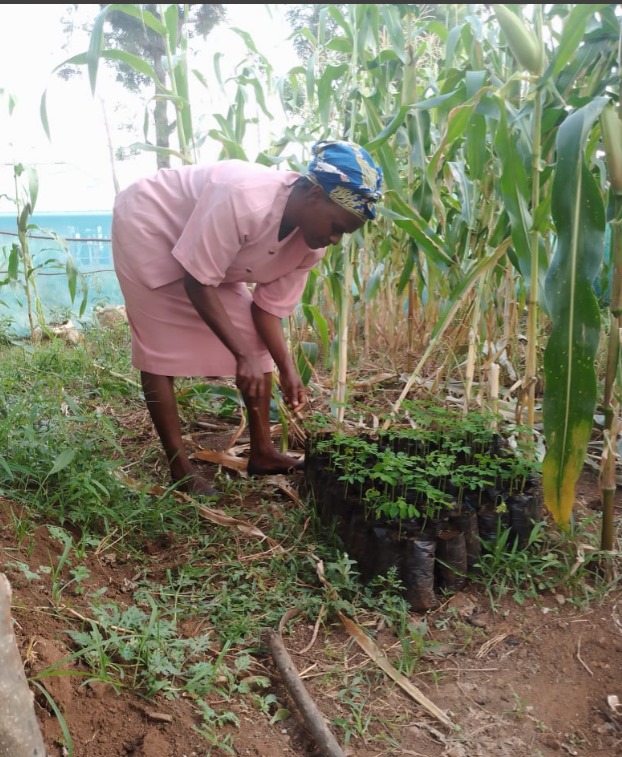Moringa farming is highly scalable due to several key factors that make it adaptable to different environments, economies, and farming capacities. Why is Moringa farming scalable?:
1. Low Input Requirements:
- Drought-Resistant: Moringa thrives in dry, arid, and semi-arid climates, making it ideal for regions where water is scarce. This reduces the need for intensive irrigation systems and makes it feasible to scale in areas with limited resources.
- Versatile Growing Conditions: Moringa can grow in various soil types, including poor, degraded soils, as long as they are well-drained. This versatility means Moringa farming can expand across diverse geographies without requiring costly soil improvements.
2. Fast Growth and High Yield:
- Rapid Harvest Cycles: Moringa trees can grow quickly and be harvested multiple times a year, allowing for continuous production. This quick return on investment makes it attractive for both smallholder farmers and larger agricultural operations looking to scale.
- Multiple Uses: The entire Moringa tree can be utilized—leaves, seeds, pods, bark, and roots—enabling farmers to maximize yield per tree. This multi-use nature makes it highly scalable for producing a variety of products (e.g., food supplements, oil, teas, cosmetics).
3. Adaptable to Small and Large Farms:
- Smallholder Friendly: Moringa can be cultivated on small plots of land, making it ideal for smallholder farmers. These small farms can easily expand over time with the introduction of additional seedlings and better farming techniques.
- Large-Scale Commercial Farms: Moringa can also be grown on large, commercial farms for industrial processing and export. With its high yield and global demand, larger agricultural enterprises can quickly scale Moringa production for mass markets.
4. Market Demand and Economic Potential:
- Growing Global Demand: There is increasing global demand for Moringa-based products due to their health and nutritional benefits. This demand spans the food, health, cosmetic, and pharmaceutical industries, providing ample market opportunities for both small and large-scale production.
- Value Addition and Product Diversification: As the market grows, value-added products (e.g., Moringa oil, powder, capsules) offer additional revenue streams, making it easier to scale operations and diversify into new markets.
5. Ease of Replication Across Regions:
- Simple Cultivation Methods: The cultivation techniques for Moringa are relatively simple and can be easily taught to farmers through training programs, making it replicable in many rural areas. Governments, NGOs, and private companies can support scalability by providing seedlings, training, and resources.
- Community-Based Scalability: Moringa farming is scalable within communities by forming cooperatives, where farmers collectively grow, process, and market Moringa. This cooperative approach allows for rapid replication of the model across multiple regions.
6. Environmental Sustainability:
- Regenerative Farming Practices: Moringa enhances soil fertility and prevents erosion, making it suitable for sustainable agricultural models. The environmental benefits of Moringa farming support long-term scalability without degrading the land.
- Agroforestry Integration: Moringa can be incorporated into agroforestry systems, allowing farmers to interplant it with other crops. This encourages biodiversity and maximizes land use, making it an efficient farming model that is scalable over large areas.
7. Support from Governments and NGOs:
- Partnerships and Investment: Governments, development organizations, and NGOs increasingly recognize Moringa’s potential for poverty alleviation, nutrition improvement, and environmental sustainability. Their support can scale Moringa farming through the provision of infrastructure, training, and market access.
Moringa farming is highly scalable across various contexts due to its low input requirements, adaptability to different land sizes, fast growth cycles, and strong market demand. It offers a sustainable and economically viable model that can be scaled by smallholder farmers, larger commercial enterprises, and entire rural communities.



